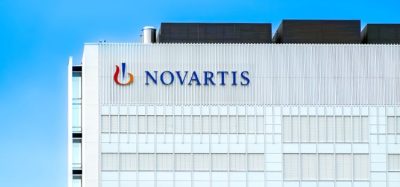UK conditionally approves Lilly’s Retsevmo® for RET-driven lung and thyroid cancers
Posted: 12 March 2021 | Hannah Balfour (European Pharmaceutical Review) | No comments yet
The conditional marketing authorisation of Retsevmo® (selpercatinib) was based on positive results from the LIBRETTO-001 Phase I/II trial.


The UK’s Medicines and Healthcare products Regulatory Agency (MHRA) has granted conditional marketing authorisation for Retsevmo® (selpercatinib) as monotherapy for several RET-driven advanced lung and thyroid cancers.
The treatment was approved for:
- the treatment of adults with advanced RET fusion positive non-small cell lung cancer (NSCLC) who require systemic therapy following prior treatment with immunotherapy and/or platinum-based chemotherapy
- the treatment of adults with advanced RET fusion positive thyroid cancer who require systemic therapy following prior treatment with sorafenib and/or lenvatinib
- the treatment of adults and adolescents 12 years and older with advanced RET mutant medullary thyroid cancer (MTC) who require systemic therapy following prior treatment with cabozantinib and/or vandetanib.
Lung cancer is the third most common cancer, with roughly 85,000 people in the UK having received a lung cancer diagnosis. The majority (up to 90 percent) of lung cancers are NSCLC, while RET fusion-positive tumours only occur in a very small percentage (one to two percent), they are more commonly found in people younger than 60 years.
Additionally, there are around 3,700 new thyroid cancer cases in the UK every year, with cases being three times more common in women than men. MTC is rare form of thyroid cancer, accounting for approximately three percent of adult thyroid cancers, yet has poorer long-term outcomes compared to other types.
“Lilly is committed to delivering life-changing medicines to people living with cancer and we are delighted that the MHRA has granted conditional authorisation of selpercatinib for people with advanced or metastatic RET-driven lung and thyroid cancers,” stated Dr Jyun-Yan Yang, Senior Medical Director, Northern Europe, Eli Lilly and Company. “The development of targeted therapies can offer patients new treatment options with improved outcomes, potentially giving them more time with their loved ones.”
The treatment was granted authorisation based on the LIBRETTO-001 Phase I/II trial’s endpoints of objective response rate (ORR) and duration of response (DoR). In the trial, selpercatinib was evaluated in a single-arm of over 700 of patients with RET-driven cancers. In the primary analysis of 105 previously treated patients with NSCLC, 64 percent responded to treatment with an average DoR of 17.5 months. In the previously treated RET-mutant medullary thyroid cancer patients, primary analysis of 55 patients had a 69.1 percent response rate.
Dr Yvonne Summers, consultant oncologist at The Christie NHS Foundation Trust, UK, added: “This is good news for patients living with RET-driven cancers as they will soon have a treatment option that targets RET alterations directly. With trial results showing median benefit of 17.5 months, this treatment represents a significant advancement in this growing field.”
The most common serious adverse drug reactions (ADRs) are hypertension (0.9 percent), increased aspartate aminotransferase (AST) (1.6 percent) and increased alanine aminotransferase (ALT) (1.6 percent). Permanent discontinuation of selpercatinib for treatment emergent adverse events, regardless of attribution occurred in six percent of patients. ADRs resulting in permanent discontinuation by two or more patients included increased ALT, increased AST, hypersensitivity and thrombocytopenia.









